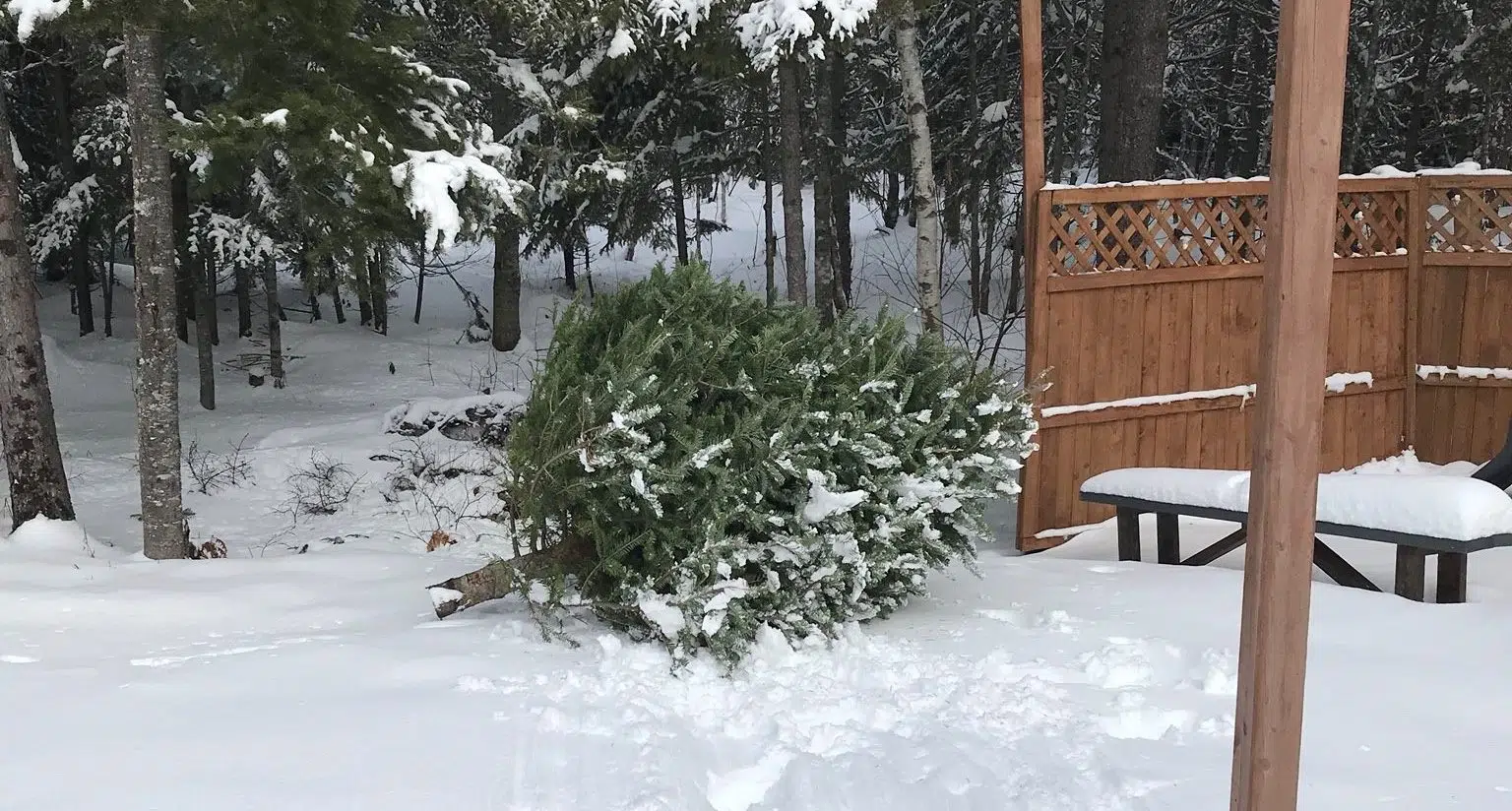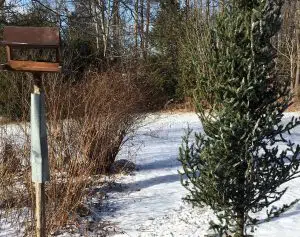
Post-holidays, a Christmas tree is settling into its new home. (Image submitted)
Instead of depositing one’s Christmas tree on the curb post-holidays, why not continue the season of giving by recycling your tree?
“What we don’t want to see is Christmas trees dropped into the landfill into the garbage system and then they catch fire and produce methane gas – that doesn’t really help any of us, said Andrew Holland, National Media Relations Director of the Nature Conservancy of Canada (NCC). “I know here in New Brunswick on the Acadian Peninsula, we’ve seen examples where communities have used Christmas trees to help fight coastal erosion.”
There are a number of options people can pursue to recycle their tree instead of throwing them away. In several municipalities, they can pick up one’s trees to be chipped up and repurposed as compost or trail bedding, while some pulp and paper companies collect the trees to burn them as an alternative fuel instead of oil.
Families can turn their tree into a cozy habitat for the winter by leaving it in the backyard decorating it with peanut butter pinecones and strings of peanuts to entice wildlife.

A recycled Christmas tree hanging out in its new home and ready for winged occupants. (Image submitted)
Many Christmas trees have a very low rot resistance and the more contact they have to the elements, the more quickly they will break down. Drilling holes in the tree trunk and stump will further speed up the decomposition process.
“If you cut down the branches, they will break down organically,” Holland said. “Once you take down your holiday decorations, we encourage people just to chuck it outside, because that can provide an important source of warmth for wintering birds that try to hack our tough winter climate.”
Holland adds that over the last three to four years more and more Canadians are recycling their Christmas trees in their backyards.
“People have wanted to try it out – they’ve seen the news releases, or they’ve seen our posts on social media or on our website and they’ve tweeted at us or put it on their Instagram,” he said. “That’s the whole point, it’s a small act of backyard conservation and something people can do to try and help.”
The NCC is Canada’s leading not-for-profit, private land conservation organization. To learn more, check out their website and Facebook page.






